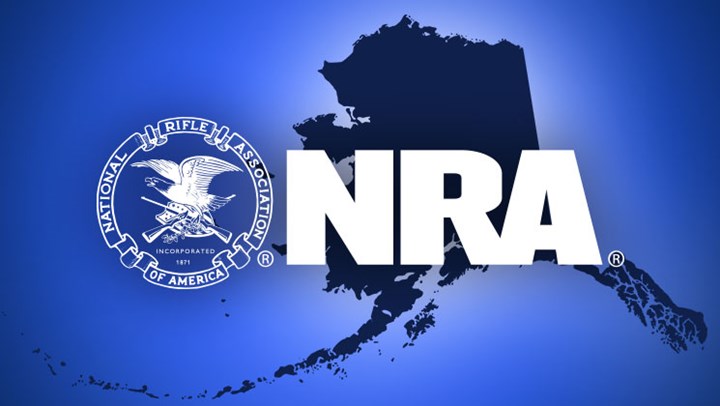
by Frank Miniter - Friday, May 18, 2018

After President Donald J. Trump was elected in November 2016 but before he was sworn in on Jan. 20, 2017, the mainstream media picked up on something Congress was moving on: a little-know law passed in 1996 called the “Congressional Review Act” (CRA) that obligates agencies in the bureaucracy to send new rules to Congress. Congress can then, if it chooses to within a certain time period, strike down the regulation. To do so both houses of Congress must vote to kill the rule and the president must sign the law, as the U.S. Constitution requires.
This had the mainstream media in an uproar because it gave a Republican-controlled Congress the ability to look back at regulations passed late in the Obama administration to see if it wanted to strike down any of them. As they were about to have a Republican president to potentially sign off on the decisions to strike down new regulations—and because President Donald J. Trump had spoken a lot on the campaign trail about reducing the regulatory burden on businesses and the American people—many of the Obama administration’s late regulations could be discarded.
One such regulation Congress decided to prevent was a new rule preventing the state of Alaska from performing predator management on National Wildlife Refuges.
In efforts to strike a balance, Alaska’s wildlife biologists carefully look over game populations and make recommendations as to whether the state should intervene to protect moose and other big game populations from wolves and other predators.
As reported by this website, this was stopped when, on Aug. 5, 2016, the U.S. Fish & Wildlife Service (USFWS) finalized a rule entitled “Non-Subsistence Take of Wildlife, and Public Participation and Closure Procedures, on National Wildlife Refuges in Alaska,” also known as the “Refuges Rule.” The Refuges Rule restricted the use of predator control methods and prohibited certain hunting and trapping methods on National Wildlife Refuges in Alaska.
To give this local power back to the state, on Feb. 7, 2017, the U.S. House of Representatives introduced H.J. Res. 69 (the “Joint Resolution”) to disapprove the Refuges Rule. On Feb. 16, 2017, the Joint Resolution passed the House by a vote of 225-193. On Mar. 21, 2017, the Joint Resolution passed the Senate by a vote of 52-47. On Apr. 3, 2017 President Trump signed the Joint Resolution into law.
Enter the anti-hunting group the Center for Biological Diversity (CBD). The CBD sued by claiming that Congress doesn’t have the power to do what the U.S. Constitution explicitly tasks them with—passing a law through its bicameral process and sending it to the president to sign or veto.
In this case, the NRA—through its lobbying arm, the NRA Institute for Legislative Action (NRA-ILA)—Safari Club International, the Pacific Legal Foundation and the State of Alaska intervened to defend the congressional action to give the state the power to properly manage its wildlife.
The U.S. District Court for the District of Alaska just ruled against CBD on this and on other grounds.
“This decision reaffirms Alaska’s right to manage its own fish and wildlife and Congress’ right to repeal regulations and federal government overreach through the Congressional Review Act,” said NRA-ILA Executive Director Chris W. Cox. “This is a huge win for hunters and state fish and game agencies.”
CBD can appeal the ruling to the Ninth Circuit within 60 days of the court’s ruling.
Meanwhile, other litigation continues over fights over similar rules by the National Park Service regarding National Preserves in Alaska and by the USFWS.
In this case, U.S. District Judge Sharon L. Gleason wrote that the “CBD provides little support for the assertion that Federal Defendants’ actions will preclude DOI [Department of the Interior] from carrying out its statutory duties, except to suggest that Congress’ disapproval of the Refuges Rule somehow renders DOI uncertain as to its remaining authority.”
Interestingly, the CBD actually argued that it had cause to make this claim by asserting that CBD members are harmed because they “seek out opportunities to study, observe and photograph wildlife (as well as their tracks and other signs) in national wildlife refuges in Alaska, including wolves, grizzly bears and black bears. Because of the Joint Resolution and the CRA, aggressive predator control practices authorized by Alaska’s Board of Game are no longer categorically prohibited and thus might now occur on Alaska refuges. Such practices would lead to fewer predators and reduced opportunities to encounter and otherwise enjoy such wildlife on Alaska refuges.”
In this claim the CBD doesn’t mention that predator control will mean there will be more opportunities to see moose, caribou and other game species as the state maintains a healthy balance between predators and prey. The group also fails to acknowledge that this will benefit local residents, including Alaska Natives, as many of them subsistence-hunt for meat.
E-mail your comments/questions about this site to:
[email protected]
